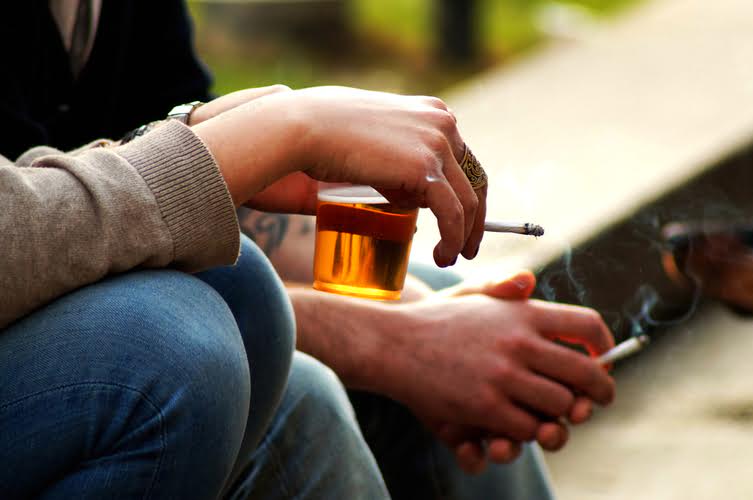04 cze Levaquin and Alcohol: What You Need to Know
Content
Chronic alcohol exposure had no significant effect on absorption kinetics or biliary or urinary excretion for either of these antibiotics (14). Antibiotics kill bacteria in order to avoid infections or stop them if they’ve started. Understanding the interactions between alcohol and antibiotics as well as alcohol and infections may clarify why avoiding alcohol may be pertinent. Antibiotic prescriptions are a common method for fighting off dangerous infections and ensuring safe recoveries from medical procedures. While maintaining an antibiotic prescription, it’s common to question whether or not alcohol and antibiotics mix safely. It is intended for general informational purposes and is not meant to be a substitute for professional medical advice, diagnosis, or treatment.
While a drink or two per day normally isn’t cause for alarm, when you’re on antibiotics even one drink can cause adverse side effects. In fact, mixing antibiotics with alcohol may add to, trigger, or complicate the side effects of your medication. Once you’ve completed your course of antibiotics, taken as directed, it will be safer to consume alcoholic beverages again.
Can I drink alcohol while taking levofloxacin?
Alcohol allergies can create anaphylaxis too, and it may take nothing more than a sip of wine or beer to start a reaction. Levofloxacin and alcohol or Levaquin and alcohol can change the effects of alcohol, medicine, or both. The interaction can happen even with moderate drinking and produce adverse health effects.
- Give your health care provider a list of all the medicines, herbs, non-prescription drugs, or dietary supplements you use.
- The vast majority of antibiotics do not interact with alcohol.
- More recent studies show how alcohol specifically weakens the immune system as it’s being metabolized.
- The results of some tests may be affected by this medicine.
Levofloxacin may cause serious liver problems, including hepatitis. Check with your doctor right away if you or your child start having nausea or vomiting, dark urine, light-colored stools, stomach pain, or yellow eyes or skin while using this medicine. Levofloxacin may lower the number of some types of blood cells in your body. Because of this, you may bleed or get infections more easily. To help with these problems, avoid being near people who are sick or have infections.
Learning Why Alcohol Interferes with Antibiotics
The use of alcohol with sulfonamides has been found to cause facial flushing, but otherwise, data on risk are limited. Regarding the interactions between alcohol and levofloxacin, there do not appear to be any clear studies that have demonstrated an interaction between the two. However, doctors strongly recommended that patients avoid combining levofloxacin with alcohol. This means that the antibiotic use may be insufficient to treat infections making the infection worse. You do not need to consume alcohol to experience the side effects of levofloxacin because some people experience these side effects without drinking alcohol.

As a result, physicians write about 14 billion prescriptions each year. You should talk to your doctor about any medications you are currently taking. There are certain drugs that can cause problems if you take Levaquin at the same time. Because of this, you should never take both of these medications at the same time.If you are currently using Levaquin, you may want to wait before taking certain lab tests.
Legal Conditions and Terms
Tendon damage may occur during or after treatment with this medication. Stop exercising, rest, and get medical help right away if you develop joint/muscle/tendon pain or swelling. Your risk for tendon problems is greater if you are over 60 years of age, if you are taking corticosteroids (such as prednisone), or if you have a kidney, heart, or lung transplant. It’s also a good idea to avoid combining alcohol with antibiotics that depress the central nervous system. Combining alcohol with some medications for depression or seizures can lead to too much sedation and even coma or death in extreme circumstances.
- Because of this, it is crucial to avoid drinking any alcohol while you are using Levaquin.
- Depending on the medications and the amount of alcohol you drink, the combination can even cause liver damage.Many antibiotics can have side effects that are similar to alcohol consumption.
- To be on the safe side, you may need to avoid alcohol for a few days after stopping such medications.
However, if you are experiencing a severe reaction after taking antibiotics and drinking alcohol, seek medical attention from your doctor or head to urgent care. Any abnormal changes to your health or concerns when using antibiotics warrant a call to your healthcare provider. While not all antibiotics will negatively interact with alcohol, it’s vital to practice caution and have clear information regarding alcohol safety with the prescribed medication. The types of drugs in this class of broad-spectrum antibiotics are tetracycline, doxycycline, minocycline, and tigecycline. They are commonly used for bacterial respiratory tract infections, like pneumonia, and some infections of the eyes, skin, and digestive system. They may even be used for diseases spread to humans from animals or insects or to treat food poisoning in people who cannot use penicillin.
Are there any antibiotics you can drink with?
Following a healthcare provider’s advice is important to determine what is safe for you. It is safe and effective, with the caveat that one must avoid alcohol while taking it. Low levels of potassium or magnesium in the blood may also increase your risk of QT sober house prolongation. This risk may increase if you use certain drugs (such as diuretics/”water pills”) or if you have conditions such as severe sweating, diarrhea, or vomiting. Another concern is that using alcohol with an antibiotic might increase side effects.



Sorry, the comment form is closed at this time.